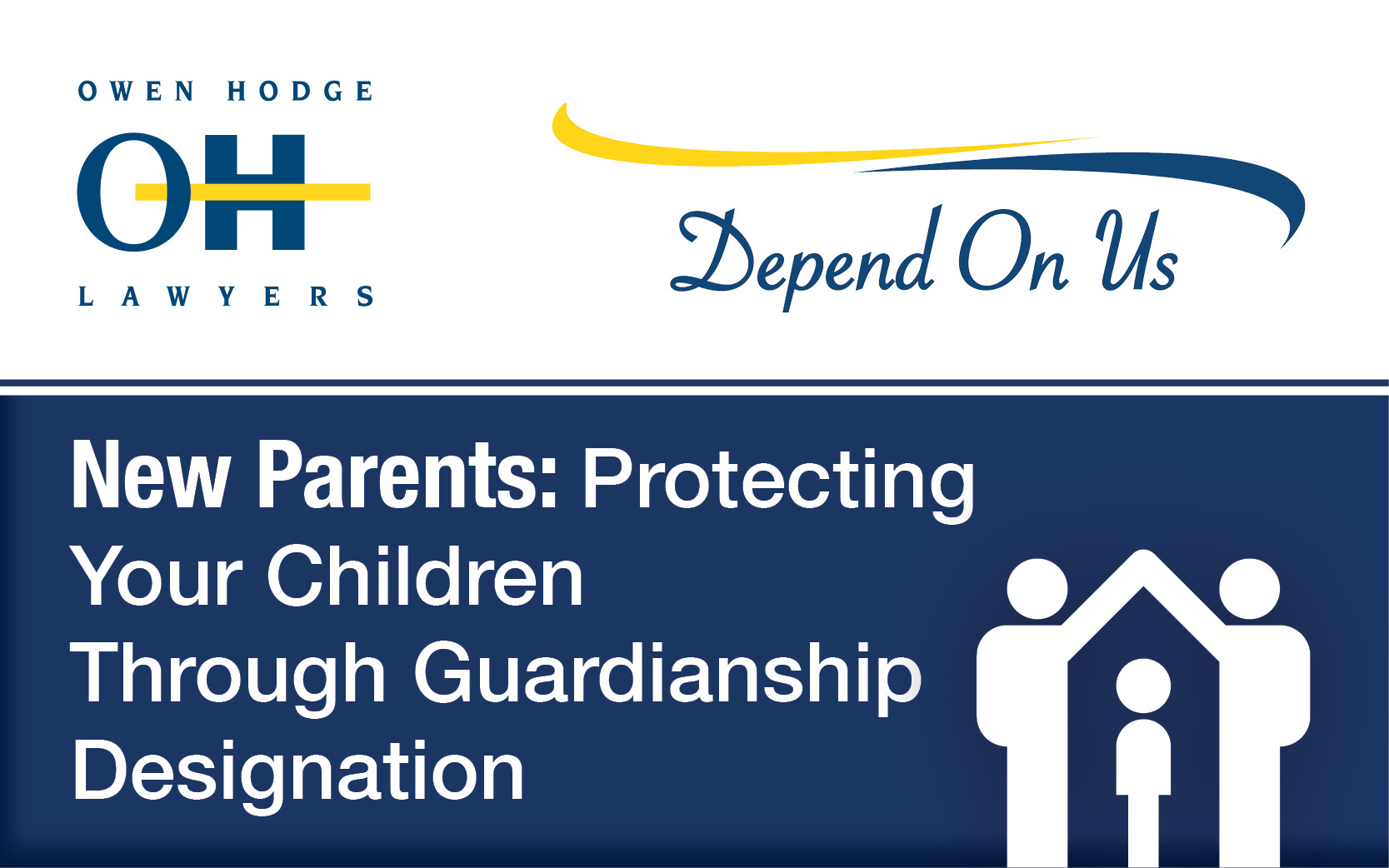
Becoming a parent is an exciting and life changing event. With each child, parents need to re-evaluate and consider all of the new and emerging needs of the family. While most families’ growing needs are easily identified and met, one need that is often overlooked is organising guardianship of a child in case of the parent’s death.
Read on to learn more about appointing legal guardians for children with a Wills and estate lawyer and how to protect your child/ren in the event of your death.

Overview:
- Guardianship of Infants Act 1916
- Appointing legal guardian for children
- Can family/friends object to the appointed guardianship of a child?
- How do I assign a guardian to my child?
- Who cannot be a guardian?
- Can I appoint two guardians for my child?
- Financial Trust for the children
Guardianship of Infants Act 1916
The legal guidelines to appoint a guardian for your child are in the Guardianship of Infants Act 1916 – Section 14. This act allows for the mother, father, or both parents, to assign a guardian for their children in the event of their individual or simultaneous deaths.
The appointed guardian is to act jointly with the surviving parent, and also has the right to apply to the court for sole custody of the child if they believe the parent to be unfit.

Appointing legal guardian for children
In NSW, parents can name at least one individual within their Last Will and Testament to become legally responsible for their children in the event of their deaths. In planning for their deaths and
preemptively naming an adult caregiver to be in charge of the children, the parents can reduce arguments and litigation amongst other family members in the event that the parents are unable to care for their children.
Learn more:
Can family/friends object to the appointed guardianship of a child?
Nominating a caregiver within a Will is not necessarily legally binding. If a family member or close family friend objects to the parents’ designated guardian, the court can still step in and review the circumstances using the best interest of the child defence.
Under these circumstances, the court can review the parents’ choice and proceed to interview all of the people involved, including the children, to make the best possible decision for the ongoing care of the child or children.
How do I assign a guardian to my child? 5 things to consider
When choosing a guardian for their children, parents should consider the following:
- The relationship and bond between the designated individual(s) and the children.
- The shared values of the guardian and the parents with regard to education, religion and morality.
- Lifestyle choices of the guardian / guardian’s family.
- Whether the guardians will promote the children’s relationships with other biological family members.
- The guardian’s ability to provide a stable living environment financially, emotionally and psychologically.
In accepting guardianship of the children, the guardian will agree to be responsible for the powers conferred upon them by the parents, as stated in the Will. These responsibilities can include making legal, medical, educational and financial decisions for the well-being of the child. As such, it is imperative that parents talk honestly and openly with the guardians that they are considering, and determine if the elected guardian is ready, able and willing to take on the responsibilities of raising children.
Who cannot be a guardian of a child?
A person cannot be a guardian if:
- The person can not take care of themselves
- The person is a minor (under 18 years)
- The person has filed for bankruptcy within the last 7 years
- The person has been convicted of a felony
- The person has committed a crime of domestic violence, abuse, neglect, exploitation, isolation, or abandonment of a child, spouse, parent, or other adult
- The person has been suspended or disbarred from the practice of law, accounting, or a profession that involves managing money and requires a state license
Can I appoint two guardians for my child?
Yes, you can appoint multiple guardians for your child.

Financial Trust for the children
In addition to appointing a legal guardian for their child/ren, parents might also want to consider setting up a Financial Trust for the monetary care of the children.
In doing this, it will allow for the parents to designate a Trustee who will be responsible for distributing the necessary finances for the legal guardians to care for the children(s) financial needs. The separation of the financial needs and the physical care needs provides a safeguard for the monies left for the specific purpose of the care of the children.1
Alternatively, parents can set up a testamentary trust for their children. Unlike a discretionary trust, a testamentary trust is created under a will and only comes into effect after the testator’s death.
Speak to an estate planning lawyer
While the thought of appointing legal guardians for your child/ren in the event of your death is a daunting responsibility, it is necessary for the safety and well-being of your children.
Parents who have taken the time to consider the needs of their minor children and the adult who can care for them, can bring parents and families significant peace of mind.
For further information about legal guardianship of a child in NSW, enduring guardianship or inquiries about what happens to a child if both parents die, please contact the offices of Owen Hodge Lawyers. At Owen Hodge, we are always happy to assist clients in understanding the full ramifications of any and all of your legal needs. Please feel free to call our estate planning lawyers at your earliest convenience to schedule a consultation at 1800 770 780.
People also read:
- What Can a Power of Attorney Decide for You?
- Advantages of Creating a Testamentary Trust
- Can You Leave Your Child a Lump Sum of Money in Your Will?
